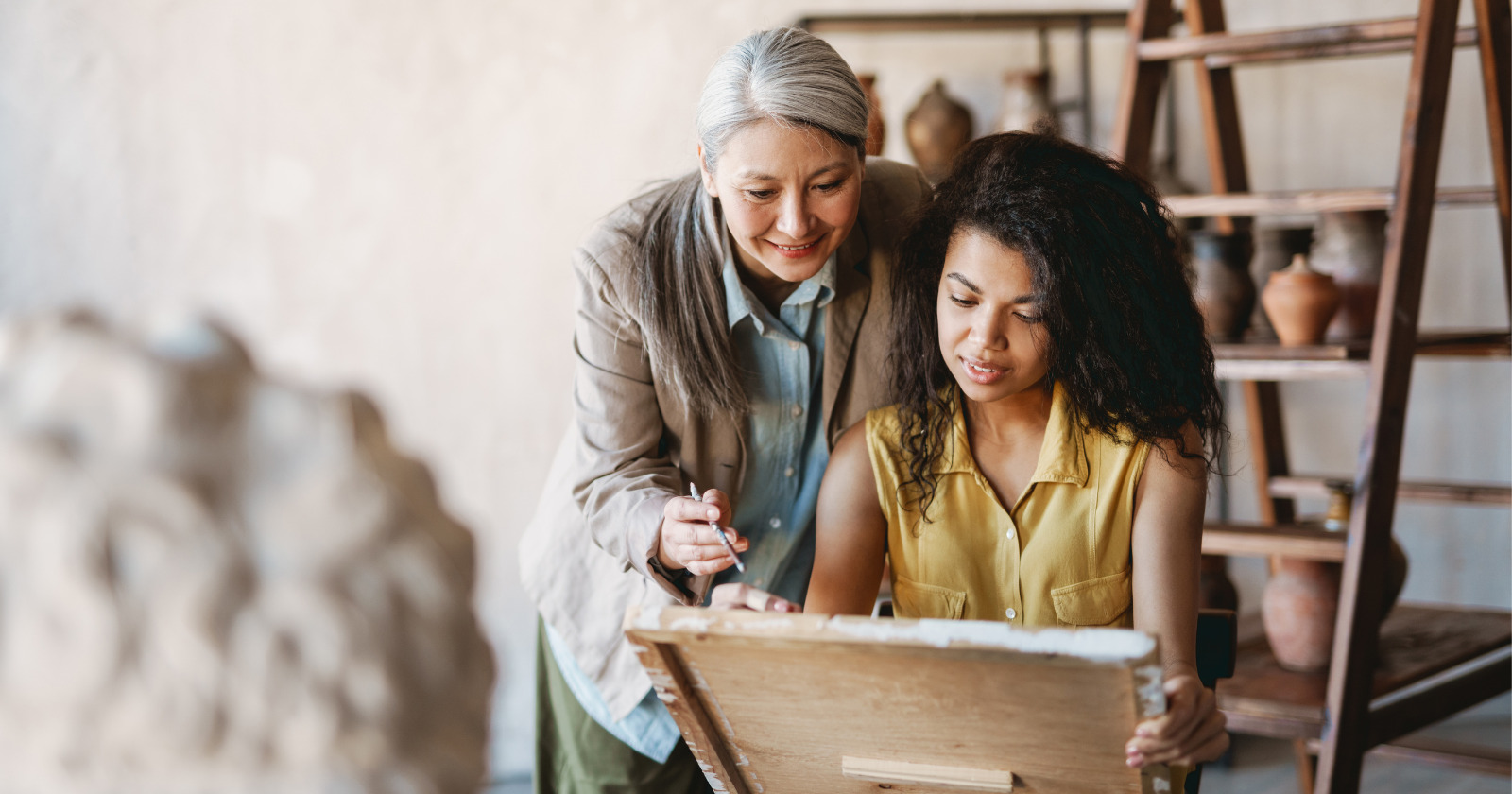Maybe grandparents don’t have as much time as they’d like to leave a lasting impact on their grandchildren.
Every shared moment, every conversation, becomes part of the legacy they’ll remember.
But as grandchildren grow into their own lives and ideas, staying close often requires more than love alone—it means rethinking certain habits that might, without realizing it, create distance.
In this article, we’ll reveal 10 common behaviors that may unintentionally drive grandchildren away and explore how small, thoughtful changes can foster a bond built on respect, trust, and a lasting connection that grandchildren will hold dear for a lifetime.
1) Overstepping boundaries
Respect is a two-way street, and it’s particularly relevant when it comes to your grandchildren.
There’s an invisible line between being a loving grandparent and encroaching on personal space.
It can be tempting to treat your grandkids like your own children, but remember, they have parents for that role.
As they grow, grandchildren need their space and autonomy, just like everyone else.
Overstepping their boundaries can lead them to view you as intrusive rather than a guiding figure.
This doesn’t mean you can’t be involved in their lives or give advice when needed.
It’s about finding the balance and respecting their individuality.
2) Relying too much on nostalgia
I used to think that sharing stories from my past was a great way to bond with my grandchildren.
It was my way of passing down life lessons and offering them a peek into a world before smartphones and social media.
But I began to notice the glazed look in their eyes and the polite nods.
That’s when I realized I was overdoing it.
It’s natural to want to share our experiences, but constantly reminiscing about the “good old days” can create a disconnect.
Always comparing their world to ours can make them feel like we don’t understand or appreciate their reality.
- 4 zodiac signs who overthink past conversations and regret what they didn’t say - Parent From Heart
- If you struggle with people-pleasing, these 8 phrases will stop you from being taken advantage of - The Blog Herald
- 8 phrases you don’t realize are making you come across as inexperienced and incompetent at work - NewsReports
It’s essential to create new memories with them in the present, instead of constantly living in the past.
By adjusting this habit, I found my grandchildren were more engaged and open during our interactions.
We were connecting in their world, not just mine. And that built a foundation of mutual respect.
3) Resisting change
Did you know the human brain continues to form new neural connections throughout life?
This process, known as neuroplasticity, enables us to adapt and learn regardless of age.
Clinging to old ways and resisting new ideas can create a distance between you and your grandchildren, who live in a fast-evolving world. Showing a willingness to understand this world can make a significant impact.
Embracing new ideas, technologies, or even unfamiliar music genres doesn’t mean compromising your core values.
It reflects a willingness to expand alongside them, showing that you are invested in growing together, and creating space for meaningful conversations.
4) Lecturing instead of listening
When it comes to communication, we adults fall into the trap of talking more than we listen.
And this is especially true when we’re dealing with our grandchildren.
We have a wealth of life experience to share, and it’s only natural to want to impart our wisdom.
But here’s the thing: respect is not just about what we say, but also about how well we listen.
Younger generations have their own unique perspectives and insights.
They want to feel heard and acknowledged.
By constantly lecturing, we unintentionally send a message that our views are more valuable than theirs.
To earn our grandchildren’s respect, it’s essential to allow them to express their thoughts and feelings.
Showing genuine interest in their perspectives helps them feel valued.
This doesn’t mean holding back your own wisdom or advice.
Effective communication works best as a two-way street.
Next time you feel the urge to launch into a lecture, try asking your grandchild for their opinion.
You may be surprised by what you learn.
5) Dismissing their passions

Everyone has unique interests and passions, and your grandchildren are no exception.
Dismissing or belittling what they love can create a sense of disconnect and disrespect.
Whether it’s a fascination for video games, a love for a particular music band, or an interest in skateboarding, taking the time to understand and engage with their passions shows them that you value their individuality.
You don’t have to become an expert in their interests.
Showing genuine curiosity and respect for what they love is enough to bridge the gap.
6) Holding onto grudges
We all make mistakes, and our grandchildren are no exception.
They’re learning and growing, and sometimes, that involves messing up.
How we respond to these mistakes can greatly impact their respect for us.
Holding onto grudges, constantly bringing up past mistakes, or staying upset for long periods can harm your relationship with your grandchild.
It can make them feel judged and hesitant to share their thoughts or problems with you.
Forgiving and letting go is vital.
This approach isn’t about ignoring mistakes but guiding them toward a better path and moving forward without holding the past against them.
Henry Ford said, “The only real mistake is the one from which we learn nothing.”
Showing them that everyone can learn and grow from their missteps can be a powerful lesson.
7) Being too serious
Maintaining strict rules and discipline can sometimes create a barrier between grandparents and their grandchildren.
Being overly serious may prevent grandchildren from feeling comfortable and relaxed around their elders.
It’s important to demonstrate that life also has room for fun and laughter.
Engaging in activities that grandchildren enjoy, such as playing video games, participating in playful antics, or even learning their slang, can transform the relationship.
After all, “Laughter is the shortest distance between two people,” as Victor Borge wisely observed.
This shift from a formal to a more relaxed and enjoyable interaction allows grandchildren to feel free to be themselves.
8) Always being the problem solver
As grandparents, we naturally want to swoop in and fix everything for our grandchildren.
But sometimes, the best way to help them is by not solving their problems right away.
Guiding them to find their own solutions empowers them and boosts their problem-solving skills.
It shows your trust in their abilities, which in turn, fosters respect.
This isn’t a matter of leaving them to struggle.
Providing tools and guidance helps them navigate challenges independently, instilling confidence along the way.
Though it may feel like you’re holding back, this approach creates a lasting impact on their growth and strengthens your relationship with them.
9) Neglecting to express your love
In the hustle and bustle of life, we sometimes forget the power of simple expressions of love.
We assume our grandchildren know how much we love them, but expressing it regularly can make a world of difference.
Love isn’t just the big gestures.
It’s the small moments—a warm hug, a proud smile, a gentle word of encouragement.
Winnie the Pooh reminds us, “Sometimes, the smallest things take up the most room in your heart.”
These are the moments that children remember and cherish.
10) Forgetting to acknowledge their achievements
As adults, we understand the joy and satisfaction that comes from our achievements being recognized.
The same holds true for our grandchildren.
Whenever they reach a milestone, no matter how small, it’s important to acknowledge it.
This could be anything from scoring well on a test to picking up a new skill or even showing kindness to someone.
When we recognize and appreciate their achievements, it boosts their confidence and shows them that we’re paying attention and that we care about their growth and happiness.
Be sure it’s genuine praise.
Children can sense insincerity, which can lead to a loss of respect.
Wrap up: It’s all about connection
The bond between grandparents and grandchildren is unique, offering joy, respect, and life lessons.
At the core of this connection are habits—the ones we choose to embrace or release—shaping how our grandchildren view us.
Philosopher Soren Kierkegaard expressed it well: “Life can only be understood backwards; but it must be lived forwards.”
Our actions today become the memories they cherish tomorrow.
Let’s adapt and grow to create a legacy of love and respect.
We’re not only grandparents; we’re role models, a safe space, and a link to their past. It’s not about changing who we are, but growing with them to strengthen our connection.









